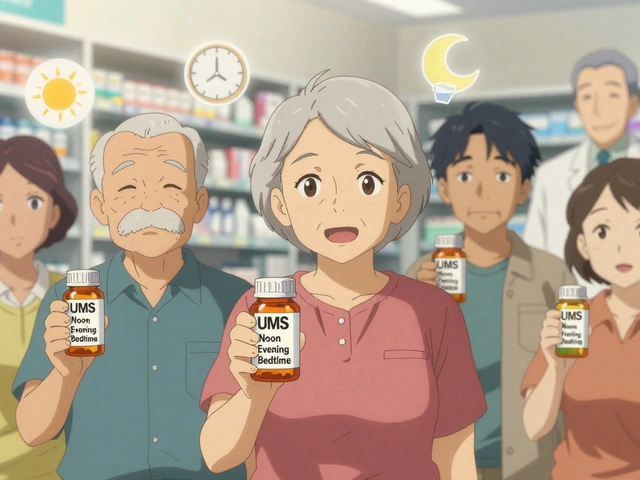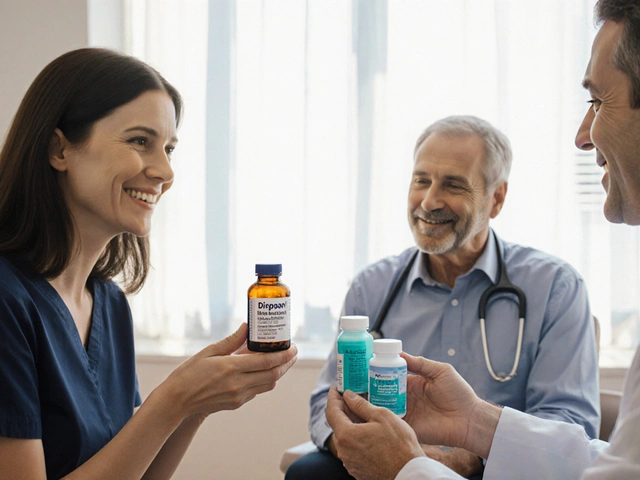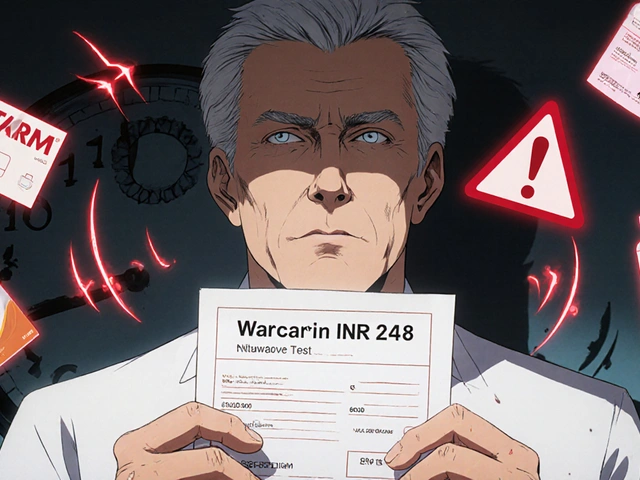Hydration: Practical Tips to Stay Properly Hydrated Every Day
Water affects mood, energy, digestion and how some medicines work. You don't need fancy drinks—small changes during the day are what matter. These quick, practical tips help you check hydration and fix problems fast.
Quick signs you're dehydrated
Dark yellow urine, dry mouth, persistent thirst, headaches, dizziness, and low energy are common warning signs. Older adults often feel less thirsty even when they need fluids. Babies and young kids may have fewer wet diapers or a sunken soft spot on the head. If you notice any signs, sip water and check again in an hour.
Severe dehydration — very low urine, confusion, fainting, fast heartbeat — needs urgent medical care.
Smart hydration habits
Keep a refillable bottle where you can see it and aim for small goals like one refill every two hours. Most adults do well with roughly 2 to 3 liters a day, but heat, exercise, pregnancy, breastfeeding, and illness change that. Sip regularly rather than chugging large amounts at once.
When you sweat a lot, replace electrolytes — sports drinks or oral rehydration solutions work well after long workouts or diarrhea. For a quick homemade option, mix a liter of water with a half teaspoon of salt and two tablespoons of sugar.
Medications can change fluid needs or how drugs act. Diuretics increase water loss. NSAIDs like ketorolac (Toradol) can strain kidneys if you are dehydrated. Antibiotics such as ciprofloxacin can bind minerals; take them with plenty of water and avoid dairy or iron for two hours.
Alcohol and sugary drinks dehydrate you quietly. Alternate alcoholic drinks with water and cut back on sodas. Sparkling water with fruit is a simple swap.
Hot days, flights, and long drives change needs. On planes sip often; in heat rest in shade and drink extra. If you work outside, schedule breaks and carry electrolyte packets.
Watch urine color, thirst, and energy to track progress. Pale straw color is good; completely clear urine all day may mean you are overdoing fluids and losing electrolytes. If you have chronic illness or take multiple drugs, ask your clinician about a tailored fluid plan.
Start small: drink a glass when you wake, have water with meals, and refill your bottle twice before dinner. These tiny habits stack up and make staying hydrated easy.
If you're treating an illness or taking new medicine, hydration can speed recovery. For example, when taking antibiotics you can reduce side effects by staying hydrated and avoiding interactions; see our ciprofloxacin guide for timing tips. Pain meds like Toradol work better and safer when kidneys have enough fluid—read our Toradol guide first. Skin irritation improves with hydration and gentle products; check our skincare routine piece for calming steps. Want a quick checklist? 1) Bottle visible, 2) Drink before you feel thirsty, 3) Replace electrolytes after heavy sweat, 4) Talk to your doctor if you have health conditions. Follow those and you’ll notice more energy, fewer headaches, and better recovery.
As a blogger, I've recently delved into the importance of hydration in preventing urine leakage. Proper hydration plays a vital role in maintaining our bladder health and avoiding urinary incontinence. Drinking enough water helps to flush out toxins and bacteria that can lead to infections, which can then cause leakage. Additionally, staying hydrated ensures our urine is diluted, preventing irritation to the bladder lining. In conclusion, it's crucial to maintain a healthy intake of water to support our bladder's function and avoid any unwanted accidents.
Read more






